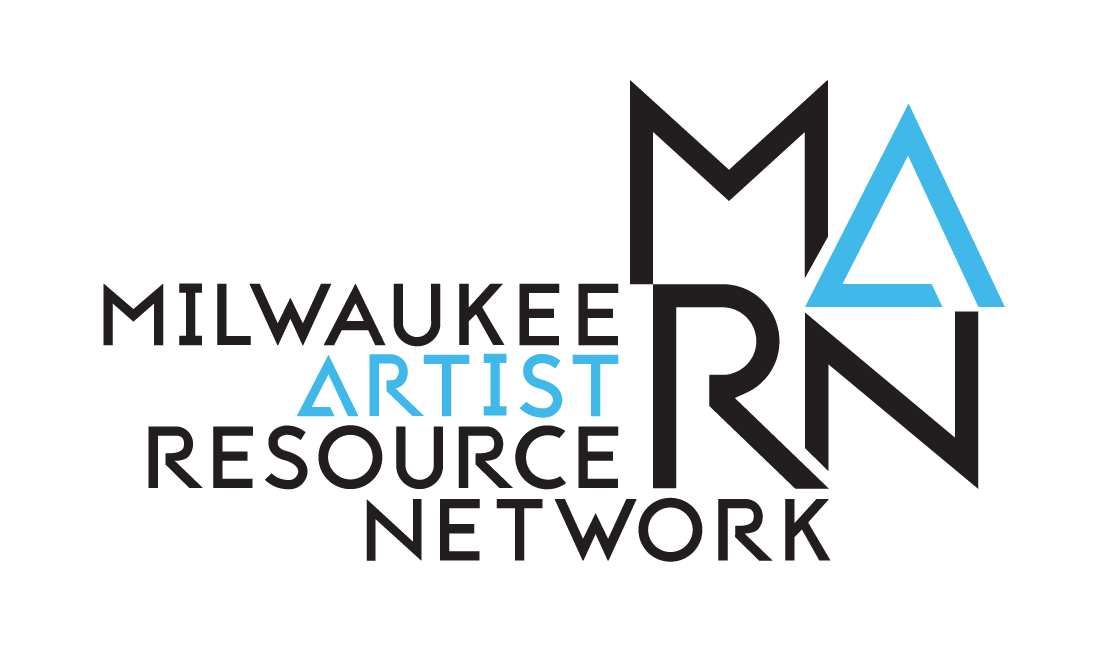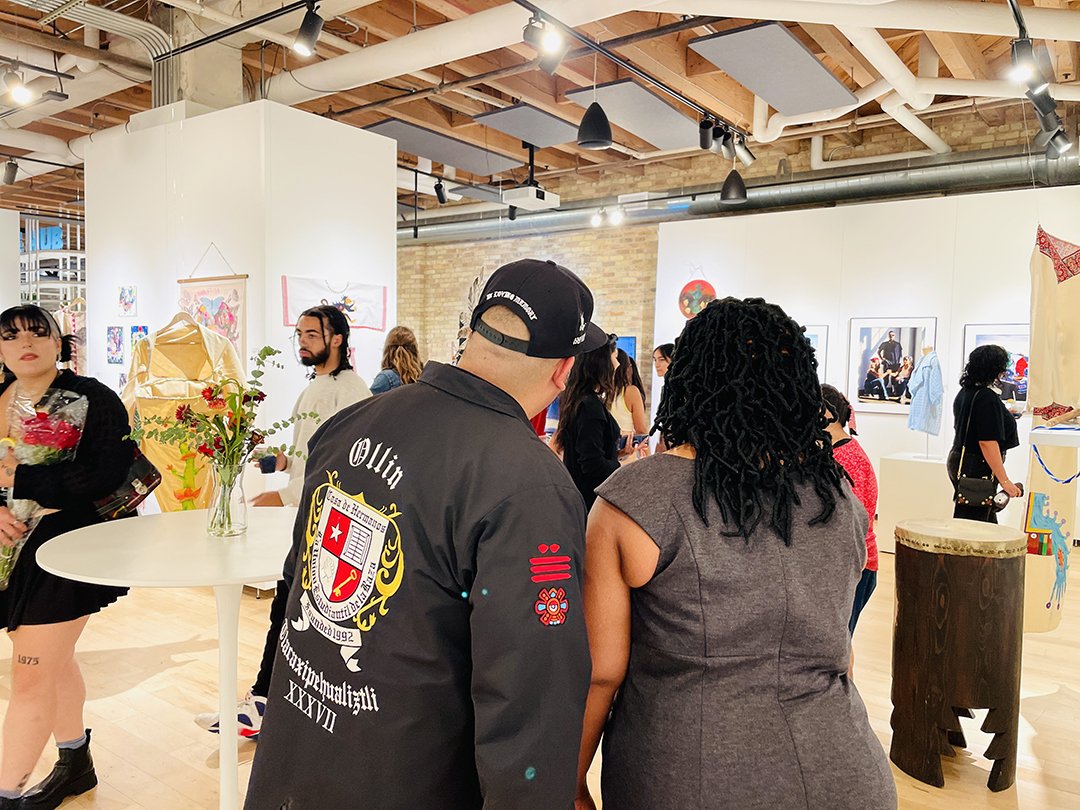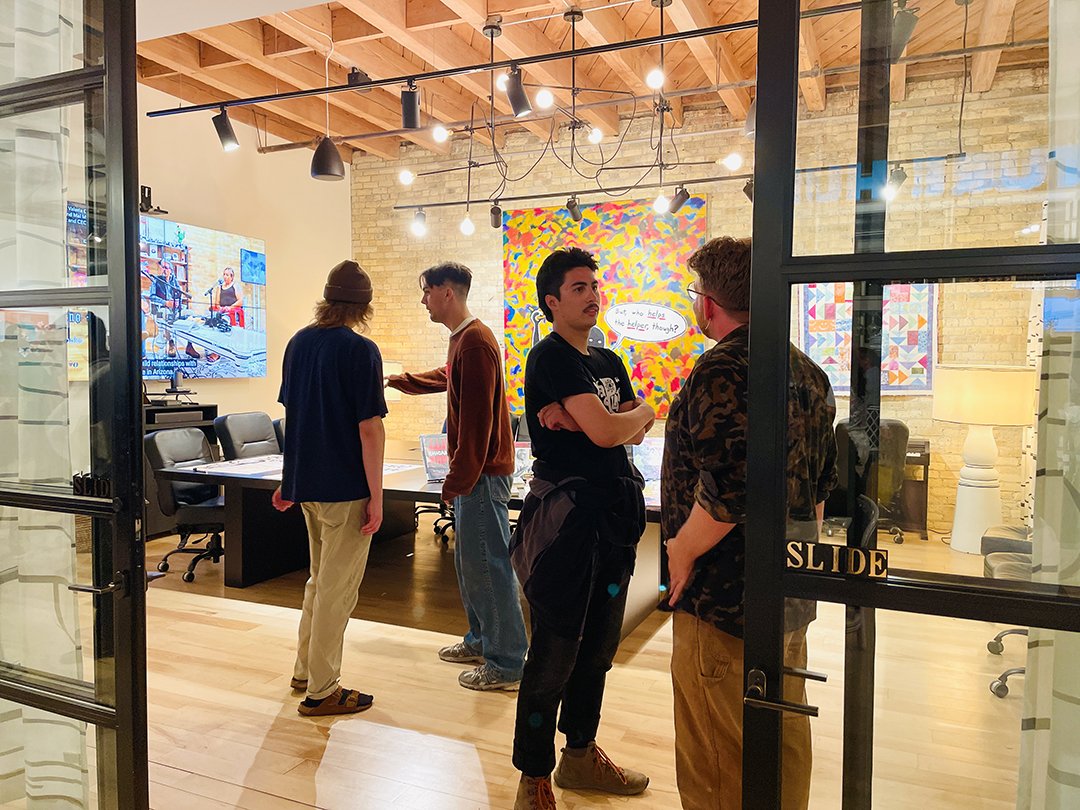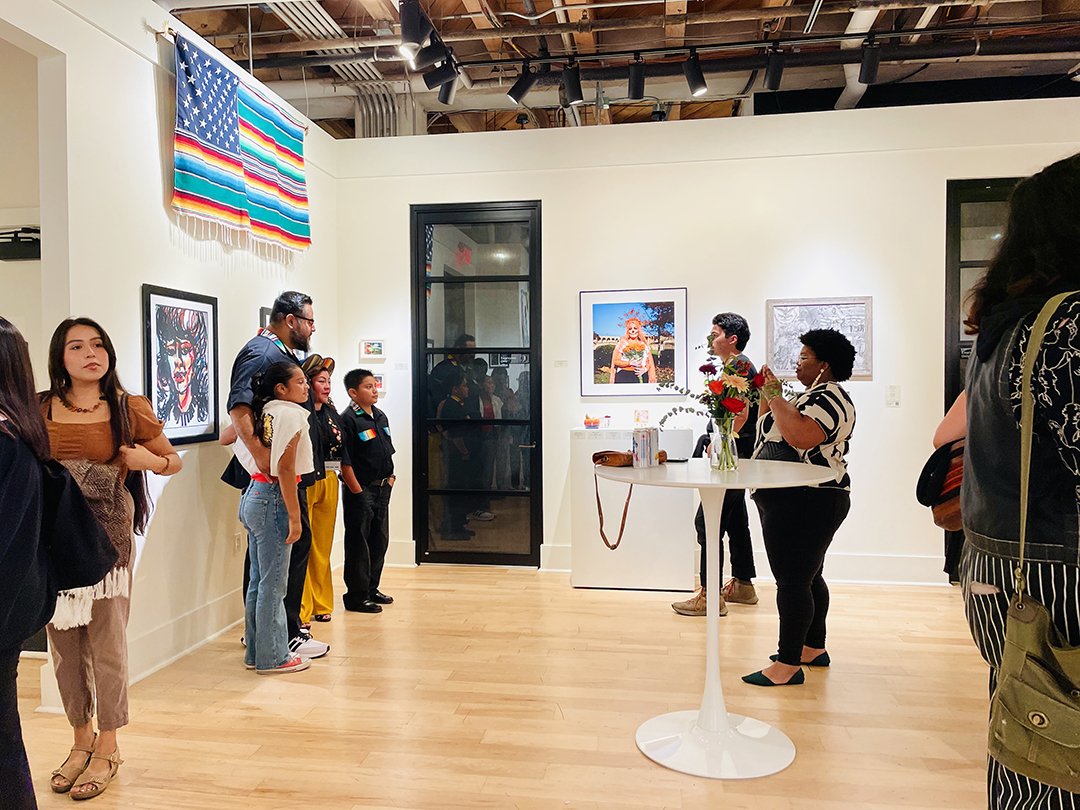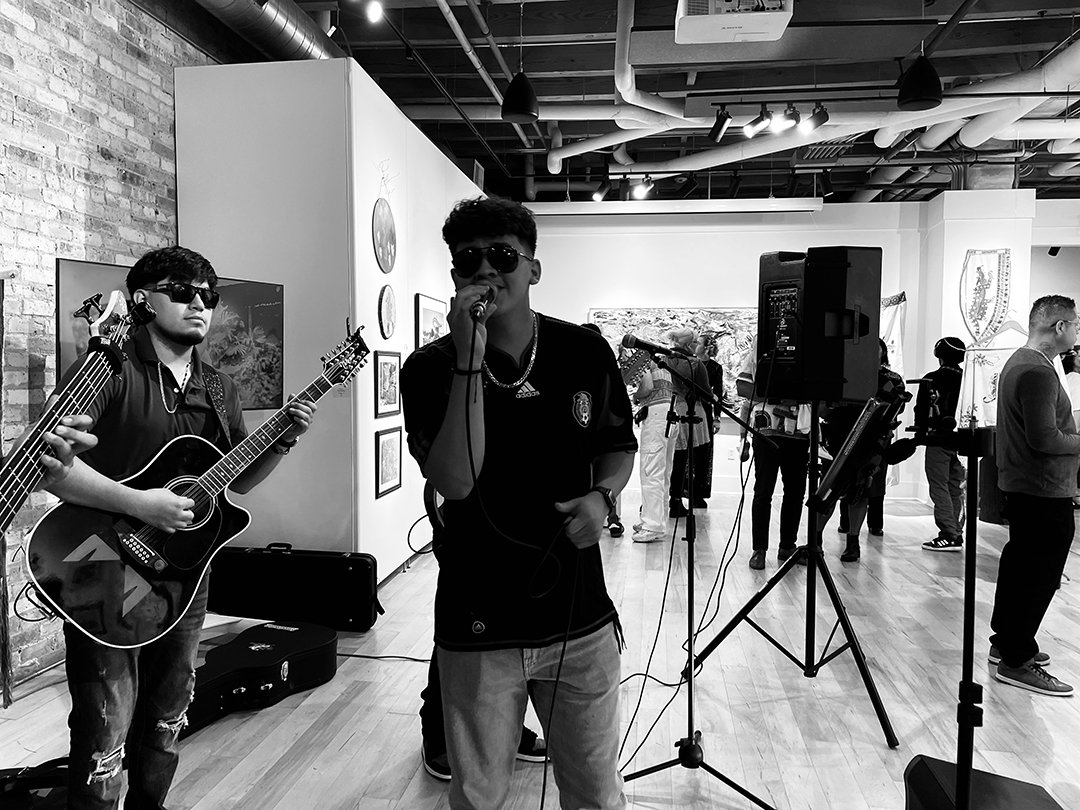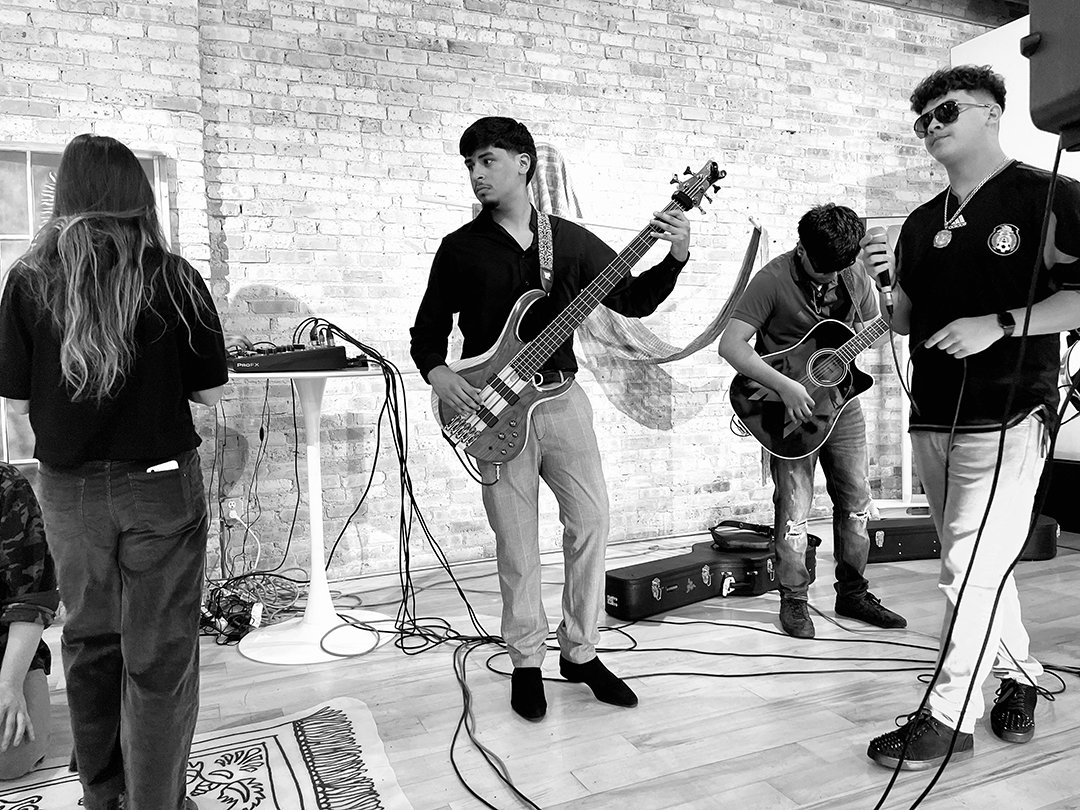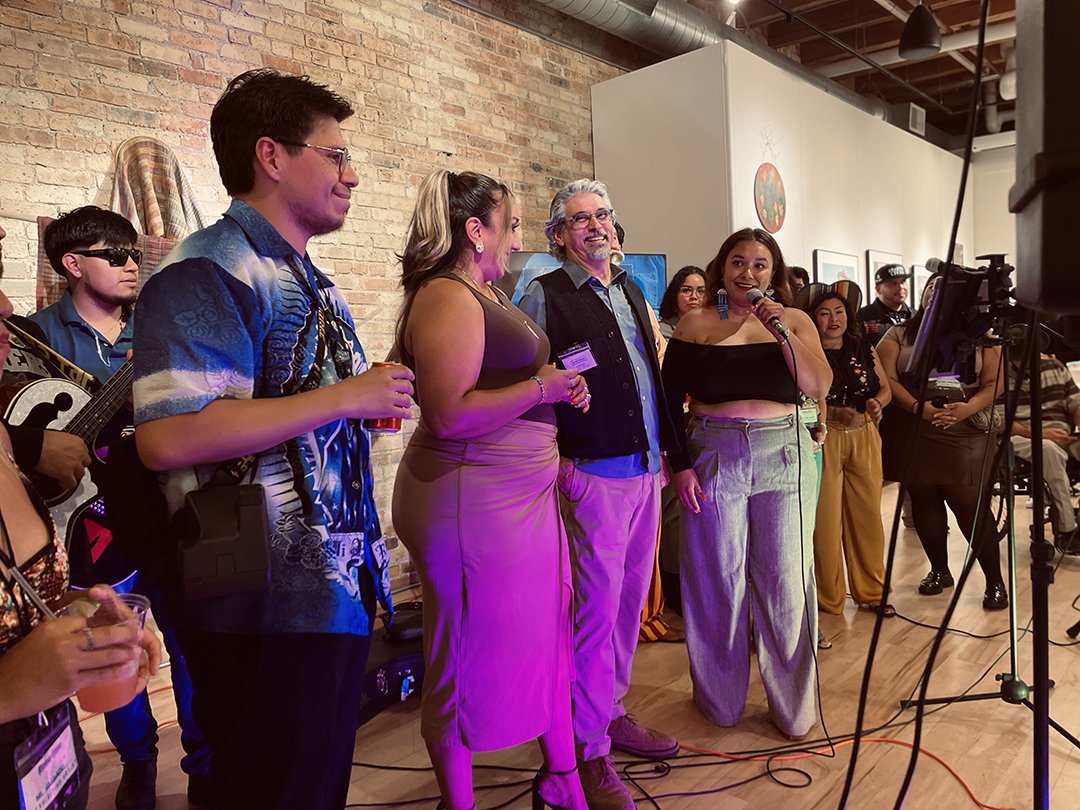¡Chicano Power!
Sponsor ¡Chicano Art!
~
Sponsor ¡Chicano Art! ~
“The revolution starts inside each of us.”—La Revo Books
Chicano Power pays homage to the depth, perseverance, defiance, and celebration of Chicanismo by bringing together its origins, recent history, and contemporary creatives in a multi-faceted experience through the complexity of the artist’s perspectives. This is meant to open up a conversation on Chicanismo not just as an identity, but as a political statement, a practice, and a piece of history.
Chicanismo didn't come easy. Amidst the momentum of the Civil Rights Movement in the late 1960s, the Brown Berets emerged as a youth organization that protected the right of other Chicanos to peacefully protest. It was and still is an act of resistance and a statement of identity to call yourself Chicano, originally used as a derogatory term until the Chicano community embraced, fought for, and reclaimed it.
Here in Wisconsin, Chicanismo had a home too. The fight for the Roberto Hernandez Center at the University of Wisconsin–Milwaukee and the Chicano Studies Program at the University of Wisconsin–Madison was led by the Brown Berets who laid the groundwork for our history to be taught. In the early 70s, Clementina Castro along with other Chicana community members and “Women on Welfare” founded La Causa DayCare. In the 70s, Vic Vela led the fight for Latine veterans against their deportation after coming back from Vietnam.
Chicano art and history finds its roots not only in the activism and ideals of the Chicano Rights Movement of the 1960s, but also in the perseverance and socio-political engagement of Chicano creatives today. The contemporary artists featured in Chicano Power show the complexity of Chicano cultural identity by utilizing art and literature as communication tools to connect, disrupt, and be a catalyst for change.
The Oakland-based Mexican American Liberation Art Front (MALA-F), active from 1968-1969, laid the groundwork for the Chicano Art Movement and the Royal Chicano Air Force. This collective of artists gathered to provide opportunities for discussion and debate about how to define Chicano art and philosophy, and as this healthy dialogue gained traction, it drew many Chicano artists to the Bay Area.
Active in Sacramento, José Montoya was an instrumental figure in shaping Chicano art and the Chicano Rights Movement. He embodied its values in his leadership, teaching, art, and poetry; Montoya’s impact continues to resonate today, and shares a common thread with the revolutionary spirit of La Revo Books. La Revo is guided by the social responsibility they feel for their community, as well as their commitment to being lifelong learners.
Montoya championed and implemented the idea of the “comuniversidad,” or community-based arts education through the Barrio Art Program which he began in the early 1970s, as well as through his involvement in The Royal Chicano Air Force. The Royal Chicano Air Force—originally called the Rebel Chicano Art Front and then renamed when people confused the RCAF with the Royal Canadian Air Force—is a Sacramento-based art collective founded in 1969 by Montoya, Esteban Villa, Juanishi V. Orosco, Ricardo Favela, and Rudy Cuellar. The RCAF became known for its murals, posters, and prints, and its innovative use of art as a political tool. Cesar Chavez relied on the RCAF to produce art and images that he could use to communicate with, unite, and organize Chicano communities and gain traction for the National Farm Workers Association (NFWA). Co-founded in 1962 by Chavez and Dolores Huerta, the NFWA eventually became known as the United Farm Workers (UFW).
Like Montoya and other key players in the Chicano Movement, the artists featured in this exhibition push the boundaries of artistic expression to reflect on Chicano identity, impact, and culture.
This exhibition situates itself in contemporary Chicano art history through the intensely personal and community oriented; the historically engaged and extremely present; and artists that speak to our contemporary moment through their vulnerability, generosity, and honesty.
Chicano Power is a collaboration between the Milwaukee Artist Resource Network and La Revo Books, an independent book collective run by Barbara Cerda and Valeria Cerda selling new and used libros by and for Black, Indigenous and People of Color (BIPOC), and Latinx readers.
This exhibit includes artists responding to the following prompts and questions:
What does it mean to be Chicano to you?
Show us your identity. How has it shaped you? How does it show up for you? What keeps you grounded?
How has being Chicano had an impact on you?
Show us what being Brown means to you.
Related Events:
¡Chicano Power! Opening Reception (marnarts.org)
Honoring Jose Montoya: A Night of Poetry (marnarts.org)
CHICANISMO - Chopped + Screwed Panel (marnarts.org)
LA ULTIMA PARRANDA at Gallery Night MKE (marnarts.org)
Exhibiting Artists:
José Montoya
Ariana Gutierrez
Alondra Arteaga
Katie Bedolla
Mi Salgado
Elvia Peña Savage
Diego Avila
Brandon Terres-Sanchez
Angela Kingsawan
Araceli Esparza
Ruben Rangel
Dulce Rosas Bucio
Alexia Jaso
Arnoldo garcía
Jonathan Vega
Maybelin Garcia Romero
Juan Bravo-Lopez
Thomas Romero
Jovanny Hernandez Caballero
Melissa Lombardo
Rodrigo Santamaria
Amanda Kuehne
David Emmanuelle Castillo
Paula Lovo
Nati Rodriguez
Makaila Silva
Sabrina Lombardo
Michael Muñiz- Muñoz
